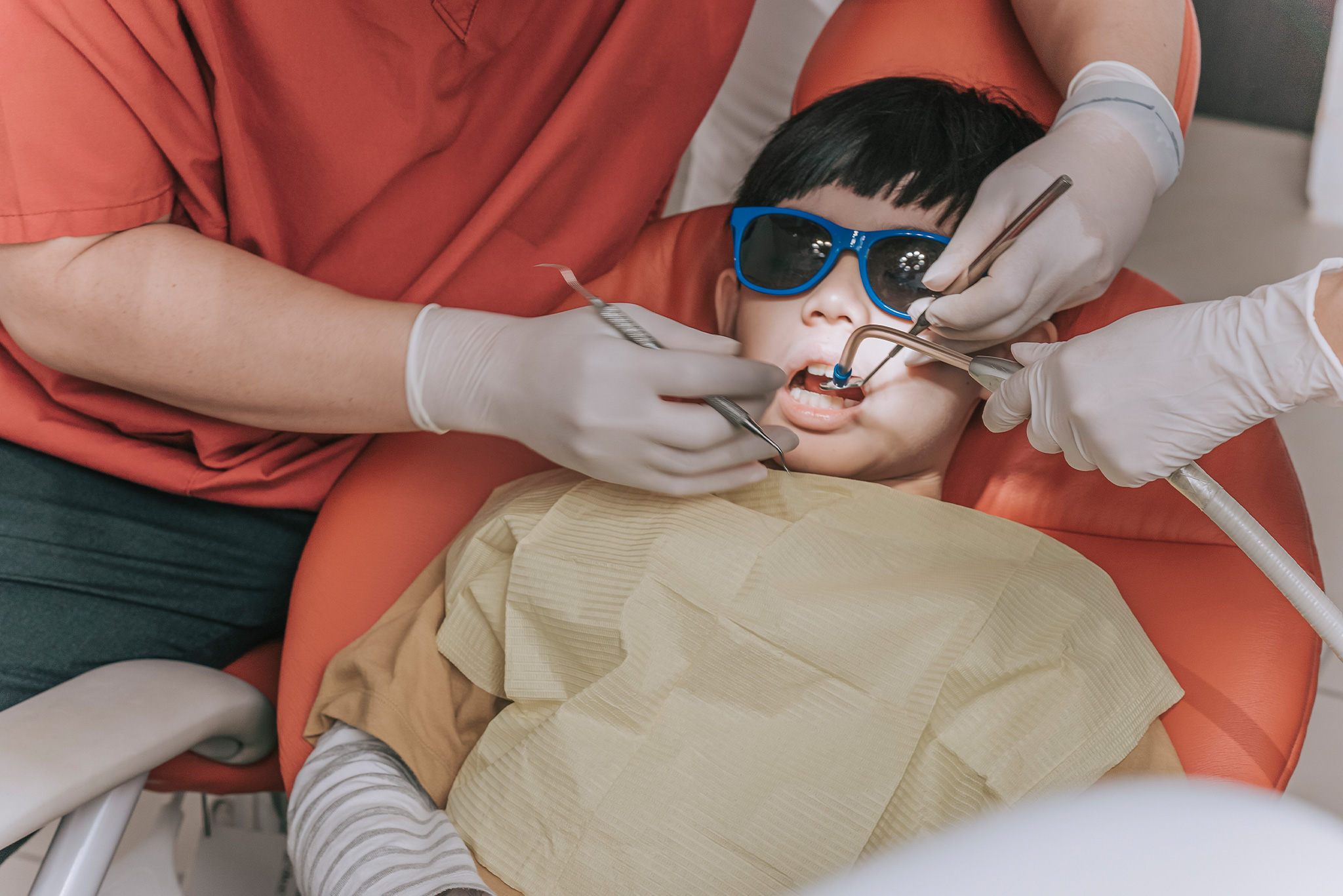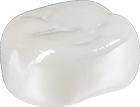
How Common Are Pediatric Dental Crowns?
Pediatric Crown FAQs
If your child has cavities or loses a tooth, the dentist might suggest a type of restoration called a dental crown. If your child’s dentist has recommended that your child get a pediatric dental crown, you will probably have some questions. Find the answers to many of the most frequently asked questions about dental crowns for children below.
- How common are pediatric dental crowns?
- What are pediatric dental crowns?
- How prevalent are dental caries (cavities) in children?
- Are dental crowns really necessary for primary (baby) teeth?
- Why would our dentist opt for pediatric crowns instead of pulling baby teeth?
- Do baby teeth with crowns fall out on their own?
- At what age can children get a dental crown?
- Which baby teeth can be crowned?
- What are alternatives to pediatric crowns?
- How painful is getting a crown for kids?
How common are pediatric dental crowns?
When you think of dental crowns, you might first think of adult dentistry. After all, crowns help us protect the function, longevity, and appearance of the permanent teeth we have for most of our lives.
But what about kids? You may be surprised to learn that pediatric dental crowns are far more common—and more necessary—than you once thought. Dental crowns for kids are an effective solution to severe damage and decay in a child’s primary (baby) teeth.
What are pediatric dental crowns?
Pediatric dental crowns are “caps” made of various materials (Stainless Steel, Zirconia) that dentists place over a child’s existing teeth to restore their original shape, size, strength and appearance. Dentists will sometimes recommend a crown when a child’s teeth are:
- Decayed
- Discolored
- Misshapen
- Broken
Crowns are most often recommended as a fix for significant tooth trauma and/or severe decay from dental caries (cavities). They’re more durable than fillings, making them a great option to repair and protect a child’s teeth until they are replaced by their permanent adult teeth. Learn more about the different types of pediatric crowns.

Pediatric dental crowns are dental restorations used to repair and protect damaged or weakened teeth in children.
How prevalent are dental caries (cavities) in children?
Believe it or not, cavities outnumber both diabetes and asthma as the most common chronic disease among children.
In fact, a cavity is five times more common than asthma and seven times more common than hay fever, according to the Indiana University School of Medicine. In the United States alone, 52% of children aged 6-8 years old have had a cavity in their primary (baby) teeth.
Untreated cavities can lead to several complications, causing anything from discomfort to developmental issues in a child. For example, when tooth decay progresses long enough, abscesses (severe infections) may form under the gums. Left untreated, these infections can spread to other parts of the body, resulting in serious medical complications.
Before dental caries progress too far, dentists may suggest capping the affected tooth with a dental crown to repair its appearance and restore its function.
Are dental crowns really necessary for primary (baby) teeth?
Yes! Even though they will eventually fall out, baby teeth are important and should be protected. Everything from a child’s oral health, diet, speech, and self-esteem are at risk if damaged and/or decayed teeth are not properly treated.
Pediatric dental crowns become necessary when a child’s weakened or damaged tooth is at risk for further damage or premature tooth loss. Baby teeth play a pivotal role in a child’s functioning and development. When a child loses a tooth before it falls out naturally, it may affect the child’s ability to eat, speak, and maintain a confident smile.
While permanent teeth may arrive shortly after to replace what was lost, that timeline can sometimes be years. A tooth missing for that long can cause challenges in a child’s ability to chew food, as well as cause structural changes in a child’s mouth.
The American Academy of Pediatric Dentistry recommends crowns for primary teeth in situations like these and more. As a common dental practice in pediatric dentistry for more than 50 years, crowns are often the safest and best solutions to these common concerns.
Why would our dentist opt for pediatric crowns instead of pulling baby teeth?
Pulling teeth is often considered a last resort for dentists, as doing so can lead to complications including:
- Misalignment or tipping of primary teeth
- Crowding of future permanent teeth
These complications can lead to more costly and involved dental and orthodontic care. These complications can lead to more costly and involved dental and orthodontic care. Learn more about pediatric dental extractions vs. crowns for damaged primary teeth
Do baby teeth with crowns fall out on their own?
One of the most commonly asked questions about pediatric crowns, is whether they will fall out on their own. The answer is yes!
Whereas adult dental crowns will last anywhere from five to fifteen years, pediatric dental crowns are designed to stay on a child’s tooth until the primary tooth naturally falls out. This longevity allows the crown to protect the affected tooth until a permanent replacement erupts through the gums.
Fortunately, crowns also require no recovery time, meaning children can resume normal eating and activity immediately after their fitting. While caring for crowns isn’t much different than caring for healthy teeth, get tips on how to care for pediatric crowns and fillings.

At what age can children get a dental crown?
Your child will start to get baby teeth between six months and a year old and will have most of their permanent teeth between ages 12 and 13. Any time in between, your child could develop tooth decay or softening of tooth enamel or could accidentally lose a tooth—all situations that might require a dental crown. Crowns are routinely used for children as young as two to four years old. Your dentist should have a wide selection of pediatric crowns in various sizes to match your child’s tooth. The right-sized tooth can ensure that your child can speak and chew properly. It will also hold a place to prevent crowding or shifting of the other teeth and will restore the natural look of your child’s smile.
Which baby teeth can be crowned?
Crowns are available to fit all front and back baby teeth. Although any type of crown can be used in any position, tooth colored or “white” crowns are usually preferred over stainless steel crowns for front teeth as they closely mimic the appearance of natural teeth. Zirconia crowns provide the most natural-looking restorations and are more resistant to staining than plastics or composites. Zirconia is also an excellent choice for back teeth because it is resistant to fracture and withstands high bite forces, making it the most durable of all ceramics used for crowns.
What are alternatives to pediatric crowns?
Pediatric dentists typically only recommend dental crowns when the tooth is too compromised for alternatives such as a filling but still healthy enough to save. This approach helps preserve proper chewing function, space for permanent teeth, and your child’s confident smile.
How painful is getting a crown for kids?
Parents are often relieved to learn that the process of getting a pediatric crown is not painful. Dentists use local anesthesia to numb the area, so children don’t feel discomfort during the procedure. In some cases, pediatric dentists may also recommend sedation to help anxious or very young patients feel more comfortable.
After the appointment, children may feel mild soreness in the gums or jaw for a day or two, similar to what they might experience after a filling. Over-the-counter pain relievers (if recommended by your dentist) and soft foods usually make recovery smooth. Most kids return to normal eating and playing right away.
Choose Pediatric Crowns You Can Trust
Pediatric crowns are more common and necessary than many think. But one word of caution: Not all pediatric dental crowns are made the same.
Dentists and parents have several options when choosing the right crowns for kids. Learn more about pediatric crowns dentists trust from Cheng Crowns: Pediatric Zirconia Crowns and Classic, Pre-Veneered Pediatric Crowns.